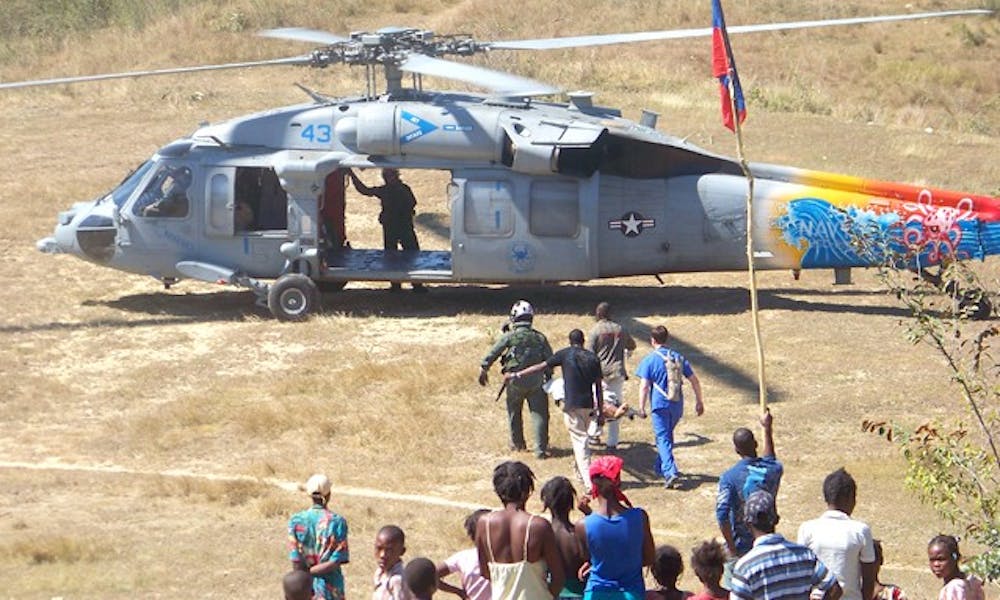After 10 days in Haiti, the Duke medical team sent in the wake of last month’s earthquake returned home Monday.
The 14-member team of specialized doctors and nurses––led by Dr. Ian Greenwald, chief medical officer of Duke Health’s Preparedness and Response Center––set out Feb. 5 to support two Partners in Health hospitals in the island nation. Partners in Health, a global health organization co-founded by Duke Trustee Dr. Paul Farmer, Trinity ’82, runs one hospital in the nation’s capital, Port-au-Prince, and one in the neighboring city of Cange.
“Our team worked 16 hours a day in 100-plus degree heat,” Greenwald wrote in an e-mail. “The work was hard. The conditions were suboptimal. But I am confident we made a difference.”
All but two team members returned Saturday, said Dr. Mark Shapiro, a trauma surgeon who served on the team. Dr. Cameron Wolfe, an infectious diseases physician, and Nancy Payne, a clinical nurse specialist, remained in Haiti until another medical team could take over, and are scheduled to return today.
“I think we pretty much had one goal [going in], and that was to support the Haitians in getting back on their feet,” Shapiro said. “We weren’t there to necessarily do the work for them. We weren’t there to make these patients necessarily ours. We were there to support them in any way possible.”
During the 10-day stay, the team split into two groups so that both facilities and their patients could be aided simultaneously.
The conditions of the two hospitals, however, were dramatically different, said Shapiro and Katie Sligh, a clinical nurse on the team.
“[In Cange,] we had running water… it was still relatively clean and the people were very nice and it was a very safe working environment [though] the hospital was overwhelmed,” Shapiro said. “But once you entered the general hospital in Port-au-Prince, the conditions were Spartan.”
He added that the team had to work by the light of head lamps at night.
In one hospital at which several team members worked, only one building escaped unscathed in the destruction by the Jan. 12 earthquake.
“People were living in tent structures,” Sligh said. “The hospital in Port-au-Prince was working with really limited resources.... A lot of [non-governmental organizations] were supplying staff and personnel to work.”
In retrospect, Sligh said that given the devastation in Haiti, the team’s efforts were “only a drop in the bucket.”
But Shapiro said the medical team exceeded its goals and objectives.
“We went in there with such strength and such determination... we were basically an entire operational staff,” he said. “We could pretty much go 24 hours if we needed to.”
Greenwald noted that careful planning allowed the team to fulfill its mission.
“We worked hard pre-departure to ensure we were bringing just the right amount of staff with the correct skill set to meet the needs on the ground,” he wrote in an e-mail. “If we didn’t feel we were making a significant impact and justifying our presence it would have been better to go home. In the end, the team did a whole lot of good.”
Get The Chronicle straight to your inbox
Signup for our weekly newsletter. Cancel at any time.

